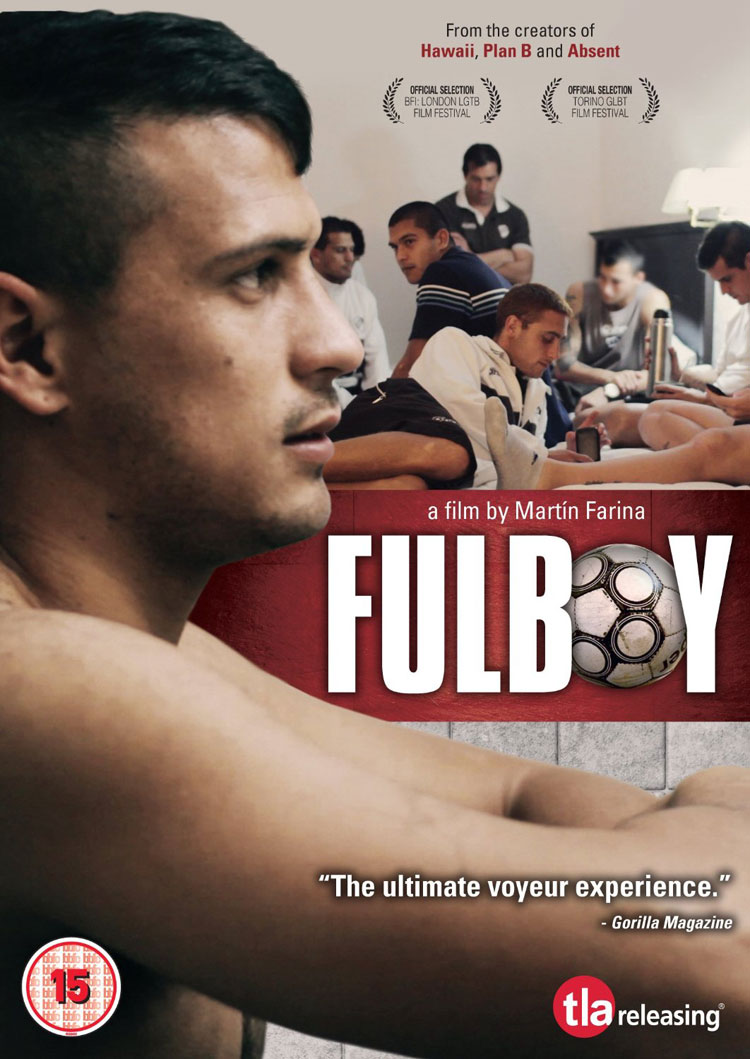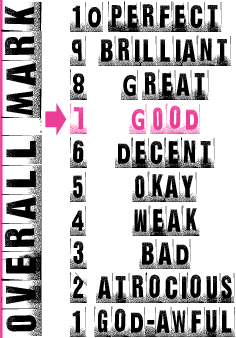
Director: Martín Farina
Running Time: 82 mins
Certificate: 15
Release Date: September 28th 2015 (UK)

Fulboy is a sports documentary that I’d be willing to bet is unlike any other you’ve ever seen. For a start it’s about a group of professional soccer players but you never actually see them on the pitch, and there’s also the fact that nearly every write-up of the movie mentions the word ‘voyeurism’.
Director Martín Farina goes on the road with an Argentinian football team, getting access because his brother, Tomas, plays for them. Initially the players are suspicious of him and how he’s going to portray them – afraid that the film will play into the image of players being lazy, spending more time smoking and playing poker than honing their sport skills.
However, he slowly gains more access to their lives, such as their fascination with how they look (which it’s suggested is a response to the fact they’re playing on TV), how much time they spend talking about their career and contracts – with a hierarchy amongst the players that acts almost like a union – and their worries about what will happen when they can’t play any longer.
None of that is particularly unique in the world of sports documentaries, but what separates Fulboy is the view of Farina’s camera. The director’s slightly pretentious narration talks about how he decided to stay off camera, but that you’ll learn about him through the gaze of his camera lens. If that’s true, it suggests a fascination with the men’s bodies and their casual nudity around one another. Farina films them extensively in the shower and locker room, with the camera often following their groin area around, so you’re not even sure which one of them it is, as their face isn’t in the shot. Indeed, you have to wonder whether the men knew this was going to be a strong aspect of the film, and also whether they noticed that Farina was following their genitals (both covered and uncovered) around with his camera.
That sort of question is a deliberate part of the film, with Farina inviting the audience to view the film in a self-reflexive way. For example, you’re aware that on the men’s side it’s both about how they are in private, as well as how they want to be seen (as they know the camera is there). Farina also wants you to question how you’re being shown it, so that you wonder whether the fact the camera is often placed at the bottom of a hotel bed looking up the body of one of the players, was merely the most convenient place to shoot from, or whether there’s a sexual, almost lustful aspect to it.
It gets to the point where you even question Farina’s motives, and whether the chance to be around sexy guys who spend a lot of time naked was more interesting to him than the supposed mission to tell us more about their lives.
Click here to watch the Fulboy trailer.
It’s a film where objectively there is no gay content – beyond the homoerotic edge to the camaraderie between the players – but yet it is an incredibly gay movie, purely due to the way it’s filmed. The ‘voyeuristic’ aspect is prevalent enough that there are moments where you wonder whether you should be watching. While Farina’s narration is a little pretentious, it’s also effective at getting you thinking about what you’re seeing, as well as bringing you inside his point of view, to the point where when the camera is viewing his brother naked in the same way it’s slightly leered at some of the other men, you almost feel like you should look away.
It’s sexy, but in a way where you’re not sure whether it ought to be sexy or not, and whether the director’s view is exploitative of the participants. For example, how aware are the players of how they’re being viewed, and if they aren’t, is that unfair to them? They know they’re being filmed, but do they know ‘how’ they’re being filmed. While the players talk of their worries about how they’ll be seen in the documentary, none of them even seem to consider a level of sexual objectification/desire. It certainly adds a level of interest to Fulboy that it would otherwise lack, to the point where sport almost becomes a subplot to the film’s self-reflexive questioning of what this documentary actually is.
Overall Verdict: Most documentaries are as much about how they’re filmed and what they decide to show you as they are about its subject, but they try to hide that. Fulboy faces it head on, taking a look at the lives of a football team, while questioning how we’re seeing it due to its voyeuristic edge.
Reviewer: Tim Isaac





Leave a Reply (if comment does not appear immediately, it may have been held for moderation)